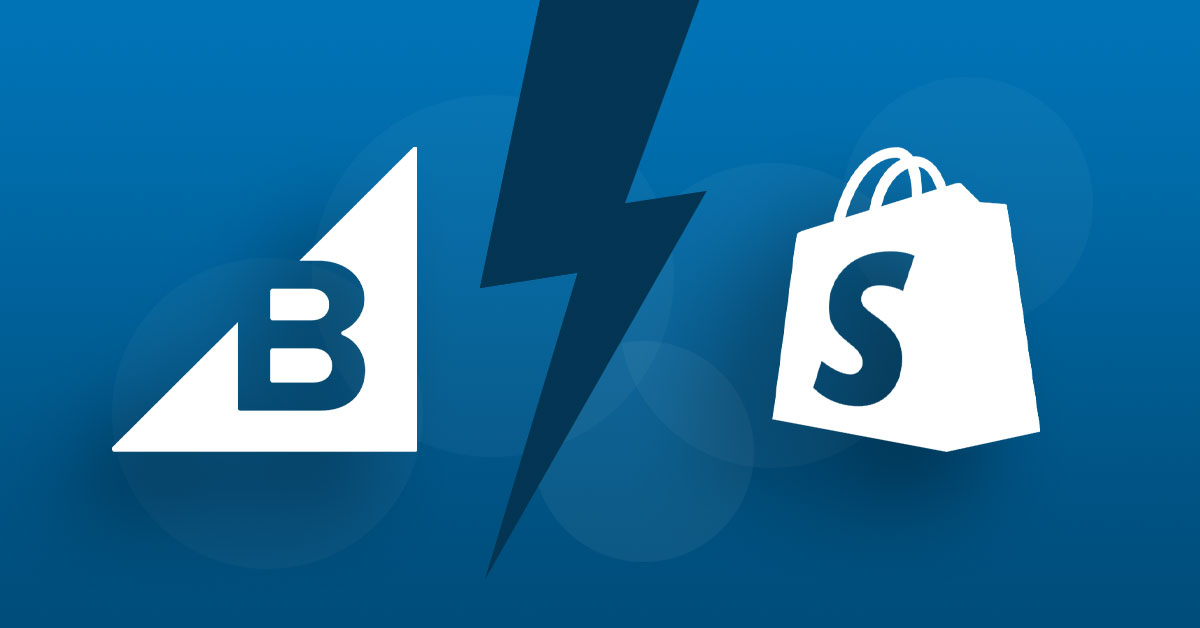BigCommerce vs. Shopify – which one should you choose?
Selecting the right platform for your online store is essential for business success. BigCommerce and Shopify are two top eCommerce solutions you can use to start your online store. But which one is better for small businesses? Should enterprises also stick with the same choice?
Deciding between Shopify and BigCommerce is not easy. They both offer a host of advanced features and marketing tools. As a result, you need to consider many nuances to zero in on the right eCommerce platform for your needs.
We have tried to highlight where each platform shines in today’s blog. Our goal is to empower you with the correct information so that you can decide independently.
BigCommerce vs. Shopify: Starting Your Store
Small businesses need a reliable solution to create an online store and sell products. Both BigCommerce and Shopify will let entrepreneurs build online stores without coding knowledge. You can use intuitive website editors to make your store and upload your products. Both the solutions also let you set pricing rules, offer shipping, and provide customer service.
However, the things to note are:
• BigCommerce offers a drag-and-drop editor to customize theme design elements easily
• Shopify offers more customization options but no drag-and-drop editor
• Both offer free and paid themes and coding-based editing
• Shopify themes are unique compared to BigCommerce
• You can create and publish blogs on both
BigCommerce vs. Shopify: Product Listing
The ease of uploading products and creating listings is a big factor for online sellers. Both platforms let you import product listings using a CSV file. BigCommerce even enables you to use XML to import your products from another store.
Next, let’s look at creating product listing manually. You can upload products to create listings on both eCommerce solutions and add images, descriptions, and other elements. In addition, you can create product categories like cookware, home & living, and so on.
One thing to note is Shopify makes it easier to add existing products to categories. You can automate the process by telling Shopify to include products that have “couch” in their title in the home & living category. Therefore, if you have a lot of products, Shopify is easier for categorization.
However, Shopify is not the outright winner here. It only allows you to add up to 3 options for any product. So you will be able to sell only three colors or sizes of a t-shirt in your store. In addition, Shopify lets you add 100 variations to each product option.
BigCommerce, on the other hand, lets you sell up to 250 product options. Additionally, you can add a maximum of 600 variations for each product.
Here, BigCommerce is the clear winner for businesses with varied products. You can add many options and almost unlimited variations and scale your store.
However, BigCommerce has a yearly sale limit for its plans. You will have to upgrade if you say, cross $50,000 in annual sales in the Standard plan.
BigCommerce vs. Shopify: Features and Functions
An online store needs many features to provide services. Our two competing platforms provide the basic features to sell products and make a profit. However, you get more functions and tools in any BigCommerce plan compared to Shopify. For the latter, you have to rely on third-party apps available from the Shopify app store.
In addition, not all apps are free in the store, and you need to pay up to $200 per month for a few apps. As a result, your monthly costs will add up if you use multiple third-party apps on Shopify. For this reason, Shopify has more apps on its store compared to BigCommerce.
The app store of BigCommerce has fewer free and paid apps than Shopify. However, you won’t need many apps as BigCommerce provides many functions out of the box.
Other things to note for BigCommerce are:
• It offers reporting and product reviews & ratings free of charge
• It provides live shipping rates from logistics providers
• BigCommerce provides cart abandonment emails in advanced plans
• You can capture customer data with text fields and more easily
• BigCommerce has more point-of-sale (POS) transactions functionalities
• BigCommerce offers unlimited accounts for your staff to use the store
And the following are true for Shopify:
• You have to use apps just to let customers leave reviews on Shopify
• It allows abandon cart email in the basic plan
• It provides automatic currency conversion based on IP through third-party apps
BigCommerce vs. Shopify: Mobile Selling
By the end of this year, mobile sales will account for 54% of total eCommerce revenues. As a result, a mobile app or store is vital for any business selling online. You need your store to work well on mobiles or risk losing out on customers and revenues.
You don’t have anything to worry about when you use Shopify or BigCommerce to build your store. Both have responsive themes that work well on mobiles to woo your customers. You can upload products, view orders, and enjoy reporting from your mobile devices on both platforms.
Shopify seems to offer more functions when it comes to a mobile app. BigCommerce comes second here, though it lets you use AMP for free for all pages to improve SEO. You will need to install a paid app on Shopify to provide support for AMP.
BigCommerce vs. Shopify: Selling and Transaction Fees
eCommerce platforms sometimes charge selling fees or transaction fees to process payments. You have to pay these fees on top of your monthly subscription for using the platform. So what do Shopify and BigCommerce charge sellers?
Fortunately, none of the platforms charge any selling fee. You also don’t have to pay any transaction fees on BigCommerce unless you are accepting credit cards. BigCommerce lets you enjoy unlimited transactions on all plans for free.
Shopify, unfortunately, charges between 0.5% and 2% fees for each transaction, based on your plan. You can only avoid the fees by using Shopify’s own payment processor for the job.
However, BigCommerce has yearly limits on how much you can sell. Here are your restrictions based on the plan you choose:
• Standard – $50,000 yearly
• Plus – $180,000 yearly
• Pro – $400,000 yearly
• Enterprise – Personalized
BigCommerce will ask you to upgrade your account if you cross these limits. However, they will still allow all your orders.
Apart from the above, you have to pay credit card processing fees to third-party services on both platforms. You will have to pay 2.9% and 30 cents for each credit card transaction. Both eCommerce solutions let you choose from a range of credit card providers.
BigCommerce vs. Shopify: Marketing Features
Sellers rely on a range of marketing tools to boost conversions and sales. You will get multiple marketing tools in Shopify and BigCommerce, but who stands out to be a better choice?
Email Marketing
Shopify has a simple feature called Shopify Email to manage email marketing. You can send specific free emails per month as a part of your plan. You need to pay additional fees to send more than your limit.
BigCommerce needs you to use a separate product for email marketing, like Mailchimp or HubSpot.
Multi-Channel Selling
BigCommerce and Shopify let you sell on a number of channels like social media. That means you can even sell on Facebook and take advantage of its huge audience base.
BigCommerce goes a step forward and lets you integrate Google Shopping directly with your products. As a result, you can rank more easily on Google with Big Commerce.
Reporting
Both eCommerce platforms come with analytics and reporting features. Shopify provides you product performance insights, but the number of metrics is limited. You can increase your reporting capabilities by upgrading to an advanced plan.
BigCommerce has robust reporting tools and gives you more features by default. You will be able to form more insights with it at lower costs.
BigCommerce vs. Shopify: Pricing
Shopify and BigCommerce plans are priced similarly:
• The basic plan costs around $29
• The intermediate plan is priced at approximately $79
• Advanced plans come for around $299
In addition, both platforms provide a special plan for enterprises with big business volumes. Shopify charges at least $2,000 per month from enterprises, while BigCommerce plan varies between $500 and $15,000. The pricing is prepared based on your annual sales volume.
You can get a free trial for both to check out features and functions.
Final Thoughts
Businesses that want value for money should go for BigCommerce. You can get more features out of the box for free that Shopify needs you to pay for. However, BigCommerce has a bit of a learning curve and may need time to get familiar with it. Shopify is more of an all-in-one solution for businesses that want to spend less time on managing and building their stores. It also provides helpful hints throughout the platform to help you sell well and easily. Big businesses may like BigCommerce for its seamless scaling and endless product variations. Determine what you need and then consider the nuances of both platforms. You will then be able to choose the right one to match your needs.
Wizard Communications is here to help you build custom eCommerce stores aligned to your unique business requirements. Our Uvanji platform lets you create an online tore and sell your products in a jiffy. It comes with advanced options and all the functions you need to scale and grow your business.
Get in touch with us to discuss your needs today.





